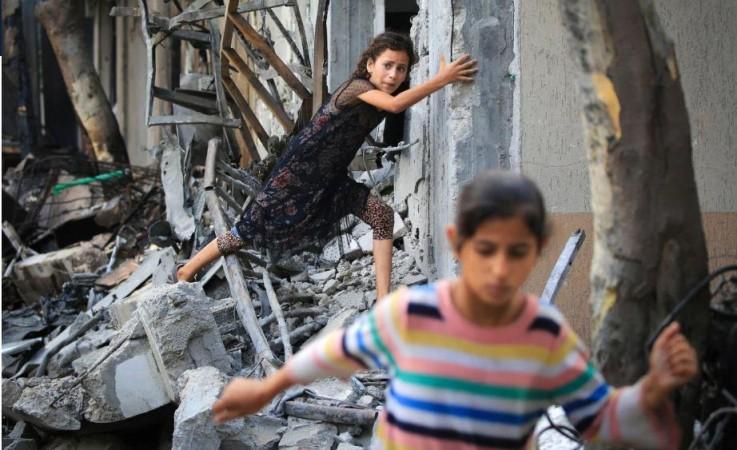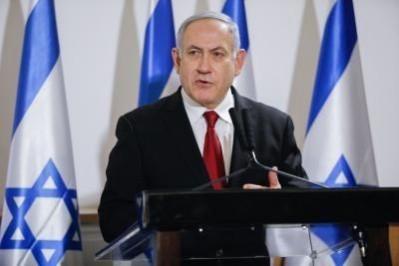
The conflict in Gaza has long been one of the most entrenched crises in modern geopolitics, marked by recurrent cycles of war, displacement, and broken truces. On September 29, 2025, U.S. President Donald Trump, alongside Israeli Prime Minister Benjamin Netanyahu, unveiled a 20-point peace plan that aspires to end the bloodshed and set Gaza on a path to stability. While ambitious and controversial, it is being described as the most detailed initiative since the Oslo Accords.
At its core, the plan attempts to replace violence with governance, radicalism with reconstruction, and uncertainty with international guarantees. Yet, as history shows, peace in the Middle East cannot be imposed from above; it must reconcile deep political grievances with regional and global realities. The world has responded with a mix of optimism, caution, and outright skepticism. This makes it vital to step back and analyze what this plan really means both for the Middle East and for a rapidly realigning world order.
The 20 Points
While the proposal stretches across 20 clauses, its essentials can be condensed into a few key commitments:
An immediate ceasefire, contingent on Hamas's acceptance.
Hostage and prisoner exchange: Hamas releases all Israeli captives; Israel releases 1,700 Palestinian prisoners, including 250 serving life sentences.
Disarmament of Hamas and exclusion from future governance in Gaza.
Establishment of a transitional technocratic authority, supervised by an international "Board of Peace" chaired by Trump with figures like former UK Prime Minister Tony Blair.
A large-scale reconstruction program for Gaza, under international oversight.
Guarantees of no forced displacement of Palestinians and no Israeli annexation of Gaza.
Ambiguous but conditional pathway toward Palestinian political representation in the future, provided reforms are undertaken.
This framework is intended as a bridge: a mechanism to end active hostilities while resetting Gaza's governance and security landscape.
Israel's Position: Security Above All
For Israel, the plan represents both opportunity and risk. Prime Minister Netanyahu has endorsed the initiative while making his red lines clear:
"I support your plan to end the war in Gaza, which achieves our war aims. It will bring back to Israel all our hostages, dismantle Hamas' military capabilities, end its political rule, and ensure that Gaza never again poses a threat to Israel."
Yet he also warned, "If Hamas does not accept, we will finish the job the easy way or the hard way." This dual message reflects Israel's core approach: peace is desirable, but security is non-negotiable.
By demanding Hamas's disarmament and permanent exclusion from governance, Israel ensures that the group's long-term political survival is undermined. But this very clause makes the plan hardest for Hamas to accept. For many Palestinians, the proposal may look less like peace and more like surrender.

The Palestinian Response: Between Hope and Rejection
The Palestinian Authority (PA), headquartered in Ramallah, cautiously welcomed the plan. In its official statement, it declared:
"The State of Palestine welcomes the sincere and determined efforts of President Donald J. Trump to end the war on Gaza and affirms its confidence in his ability to find a path toward peace."
The PA sees opportunity in the exclusion of Hamas, potentially regaining influence in Gaza after years of marginalization. Yet the ambiguity around sovereignty and the absence of a clearly defined Palestinian statehood roadmap could deepen divisions among Palestinians.
Hamas, for its part, has neither accepted nor outright rejected the plan, stating it is "studying" the proposal with mediators. Still, the group's ideological commitment to armed resistance makes disarmament a red line. Should Hamas reject the deal, Israel will claim international legitimacy for intensified military action.
Regional Reactions: Arab States' Calculated Welcome
The Arab and Islamic world has shown an unusual degree of alignment. A joint statement from foreign ministers of Saudi Arabia, the UAE, Egypt, Jordan, Qatar, Turkey, and Indonesia welcomed Trump's initiative, calling it a "sincere effort to end the war in Gaza." This endorsement reflects both exhaustion with the ongoing conflict and recognition of the need to stabilize the region.
Turkish President Recep Tayyip Erdoğan praised Trump's "leadership in halting bloodshed," signaling Ankara's readiness to play a role in the reconstruction of Gaza. For Saudi Arabia and the Gulf states, support also ties into broader strategic interests curbing Iran's influence in the Palestinian arena and paving the way for deeper ties with Israel under a U.S.-led security umbrella.
The Global Powers: Strategic Stakes Beyond Gaza
United States
For Trump, the plan is not just a peace initiative but a legacy project. He hailed it as "a historic day for peace," projecting himself as the indispensable broker. Washington has tied its credibility to the deal's success, but also signaled that if Hamas refuses, Israel has a green light to act decisively.
Russia
The Kremlin cautiously welcomed the proposal. Spokesman Dmitry Peskov declared:
"We welcome any efforts by President Trump aimed at ending this ongoing tragedy ... we want this plan to be implemented and help bring events in the Middle East to a peaceful conclusion."
Moscow's support, however, is tempered by its preference for a multilateral UN-backed process where Russia retains influence.
China
Beijing's reaction was also supportive, with its Foreign Ministry emphasizing that it "supports all efforts conducive to easing tensions between Palestine and Israel." For China, the plan offers an opportunity to reinforce its image as a stabilizer in global crises while deepening its economic presence in post-war reconstruction.
European Union
The EU and leading European states such as Germany and France have endorsed the proposal as "the best immediate chance to end the war." Yet their support comes with a consistent caveat: that Palestinian rights and eventual statehood must remain central to any lasting peace.
India's Statement: A Strategic Balancing Act
India's Prime Minister Narendra Modi was among the first global leaders to endorse the plan, stating:
"We welcome President Donald J. Trump's announcement of a comprehensive plan to end the Gaza conflict. It provides a viable pathway to long-term and sustainable peace, security and development for the Palestinian and Israeli people, as also for the larger West Asian region. We hope that all concerned will come together behind President Trump's initiative."
This position reflects India's strategic balancing. On one hand, New Delhi has deepened security and technology ties with Israel. On the other, it retains historical support for Palestinian aspirations. By welcoming Trump's plan, India aligns with Washington while projecting itself as a constructive voice for peace and development in West Asia a region critical to its diaspora, energy security, and geostrategic interests.
Weighing the Plan
The plan has notable strengths. It provides a clear mechanism for ending hostilities, prioritizes humanitarian relief through reconstruction, and explicitly rules out annexation or displacement issues that inflamed previous peace efforts. By involving international stakeholders, it also distributes responsibility beyond Israel and Palestine.
Yet the weaknesses are stark. The demand for Hamas's total disarmament and exclusion ignores the group's entrenched power and grassroots networks. Without a credible pathway to Palestinian statehood, the proposal risks being seen as a temporary truce rather than a permanent settlement. Moreover, the heavy personal imprint of Trump and Netanyahu raises concerns about what happens if political leadership shifts in either country.
Prediction: Fragile Prospects Ahead
In the short term, the plan may succeed in creating limited ceasefire zones and enabling hostage-prisoner swaps, easing immediate humanitarian suffering. Arab states, eager to stabilize the region, will likely push Hamas to engage, even if only partially.
In the medium term, full implementation faces immense obstacles. Hamas's reluctance to disarm, Israeli skepticism about long-term Palestinian sovereignty, and the fragility of a technocratic transitional authority make breakdown likely. Spoiler actors, including Iran-backed groups, could undermine progress through renewed violence.
In the long term, the plan's success will depend on whether it evolves into a credible political pathway for Palestinians. Reconstruction without political legitimacy risks creating "peace without justice," which history shows is unsustainable.
An Emerging Perspective
Trump and Netanyahu's 20-point Gaza plan has opened a rare diplomatic window. It is, in many ways, a gamble: an attempt to end war through disarmament, to rebuild trust through reconstruction, and to re-engineer Gaza's political order through international oversight. Global reactions from India's endorsement to Russia and China's cautious approval, and from Arab states' surprising alignment to Europe's conditional support show that the world is ready to test this moment.
Yet the underlying paradox remains: can peace be achieved if the strongest actor on the ground, Hamas, is written out of the future? The coming months will reveal whether this plan is remembered as a turning point in the Middle East or as another chapter in its long history of unfulfilled promises.
As Prime Minister Modi noted, the hope is that "all concerned will come together behind President Trump's initiative." The international community has welcomed the plan. Now the burden of decision rests squarely with Hamas, and the stakes for Gaza, Israel, the region, and the world could not be higher.
[Major General Dr. Dilawar Singh, IAV, is a distinguished strategist having held senior positions in technology, defence, and corporate governance. He serves on global boards and advises on leadership, emerging technologies, and strategic affairs, with a focus on aligning India's interests in the evolving global technological order.]

















